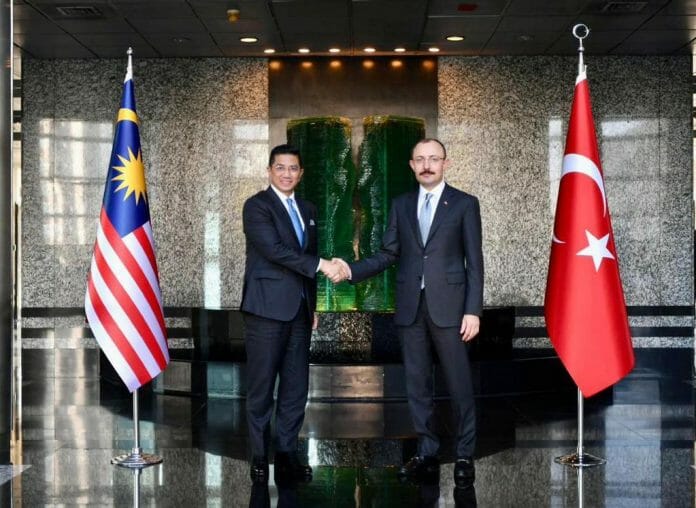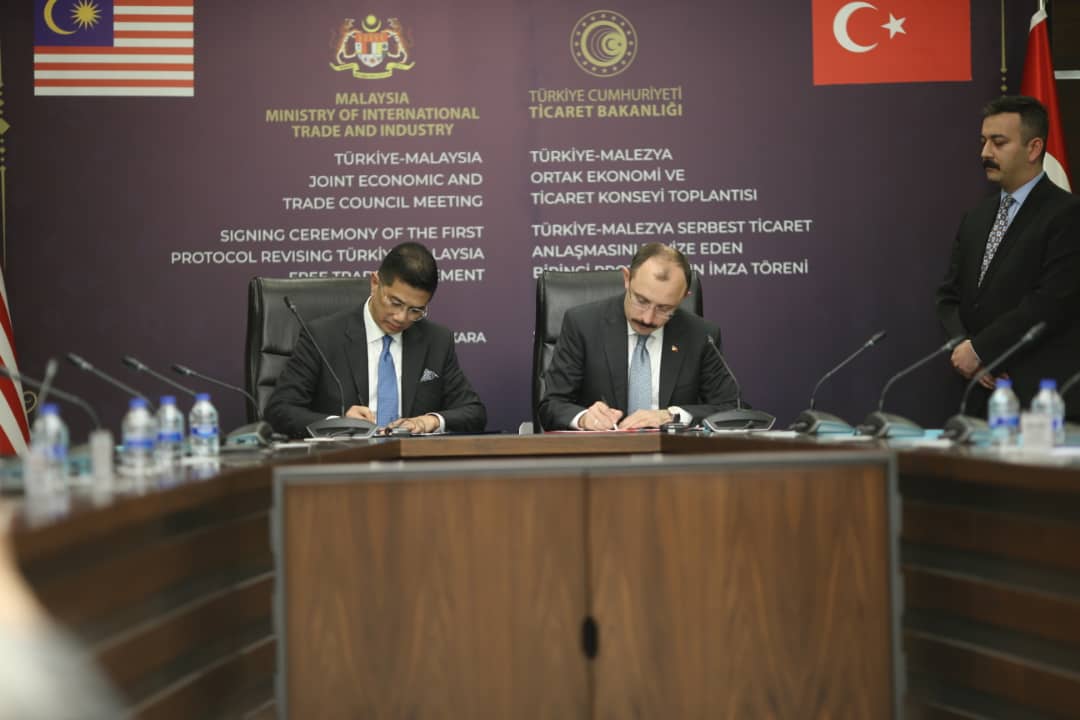The inaugural meeting of the Joint Economic and Trade Council (JETC) kicked off on Thursday (Sept 29) in efforts to improve the existing Malaysia – Turkiye Free Trade Agreement (MTFTA), implemented since 1 August 2015.
Senior Minister and the Minister of International Trade and Industry Dato’ Seri Mohamed Azmin Ali and his counterpart Minister of Trade, Republic of Türkiye His Excellency Dr. Mehmet Muş co-chaired the meeting in Ankara.
The JETC was held in conjunction with the signing of the Protocol to Amend the Free Trade Agreement (FTA) between the Government of Malaysia and the Government of the Republic of Türkiye.
The Protocol which was expeditiously completed within a 15-month period has now expanded in scope to include Trade in Services, Investment and e-Commerce.
In his opening remarks, Azmin Ali noted the benefits that are anticipated from the expansion package, including enhanced cross-flows of investments and improved mobility for professionals between Malaysia and Türkiye, provided by the transparent and predictable operating conditions as well as the removal of key barriers to services trade.
“The micro small, and medium enterprises (MSMEs) will stand to gain through the e-Commerce Chapter, which will boost their participation in international trade and fostering greater consumer confidence in online transactions through harmonisation of rules and adoption of facilitation mechanisms,” he said.
The JETC explored potential strategies to enable exporters in receiving tangible benefits from the MTFTA, particularly since the Trade in Goods package will be fully realised by 1 January 2023. From this date onwards, almost 99 percent of Turkish exports to Malaysia will enjoy duty-free treatment, while almost 86 percent of Malaysian exports to Türkiye will correspondingly avail a similar advantage.
Additionally, both nations discussed various issues regarding bilateral trade and economic cooperation, including the possibility of further strengthening collaboration in industrial sectors such as Halal and semiconductor as well as preserving the role of anti-dumping measures in preventing unfair competition.
The Senior Minister’s proposal to formally establish a bilateral Taskforce for Semiconductor Supply Chain Resilience was very well received by Türkiye.
The Taskforce will be mandated to formalise a Framework of Cooperation with the objective of establishing and securing the resilience of the semiconductor supply chain through R&D, design capabilities, production sharing capacity, talent development and market access.
The Senior Minister and his Turkish counterpart also noted that Malaysia and Türkiye are geographically positioned as the preferred manufacturing hub for ASEAN and the European Union, respectively.
In this vein, exporters from both countries were encouraged to leverage respective strategic locations as a springboard into the larger regional market.
Moving forward, both Ministers concurred that Malaysia will host the next senior officials’ level Joint Committee Meeting next year.










